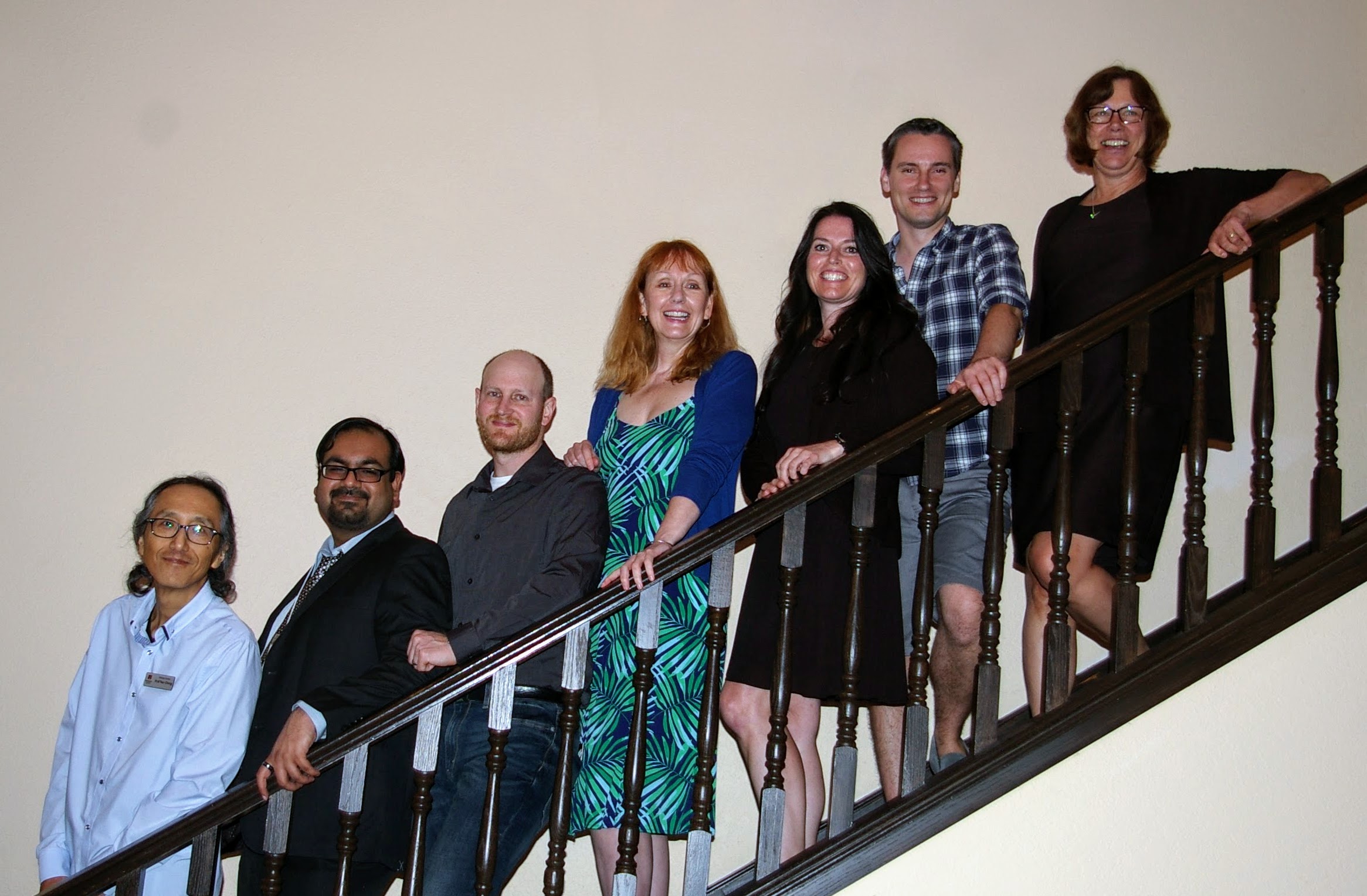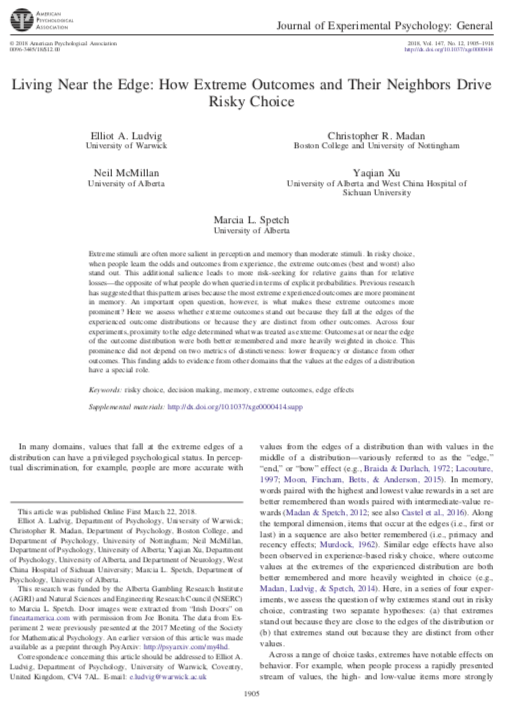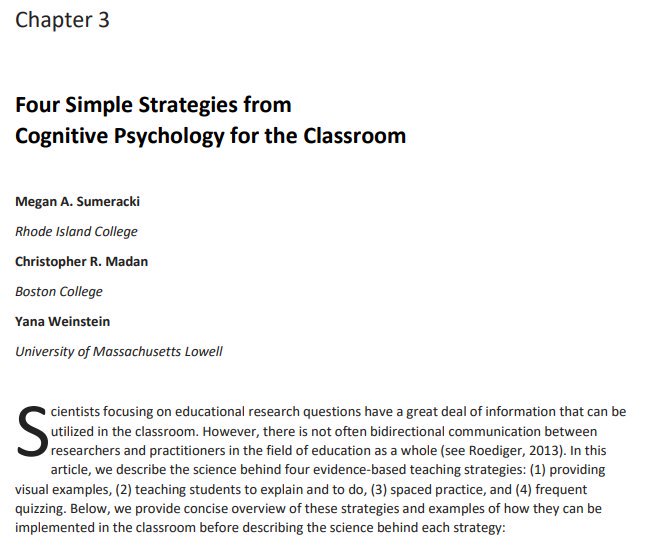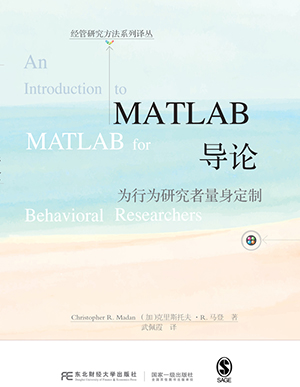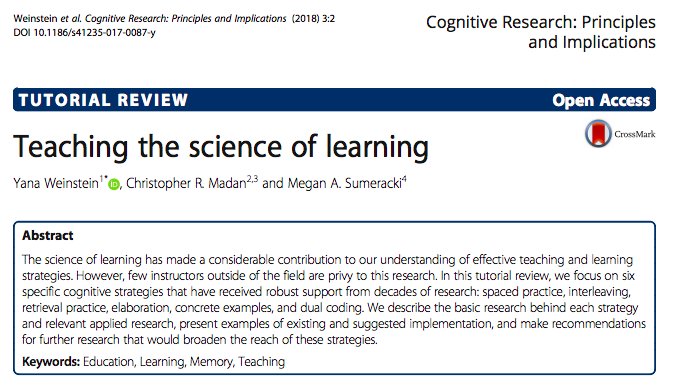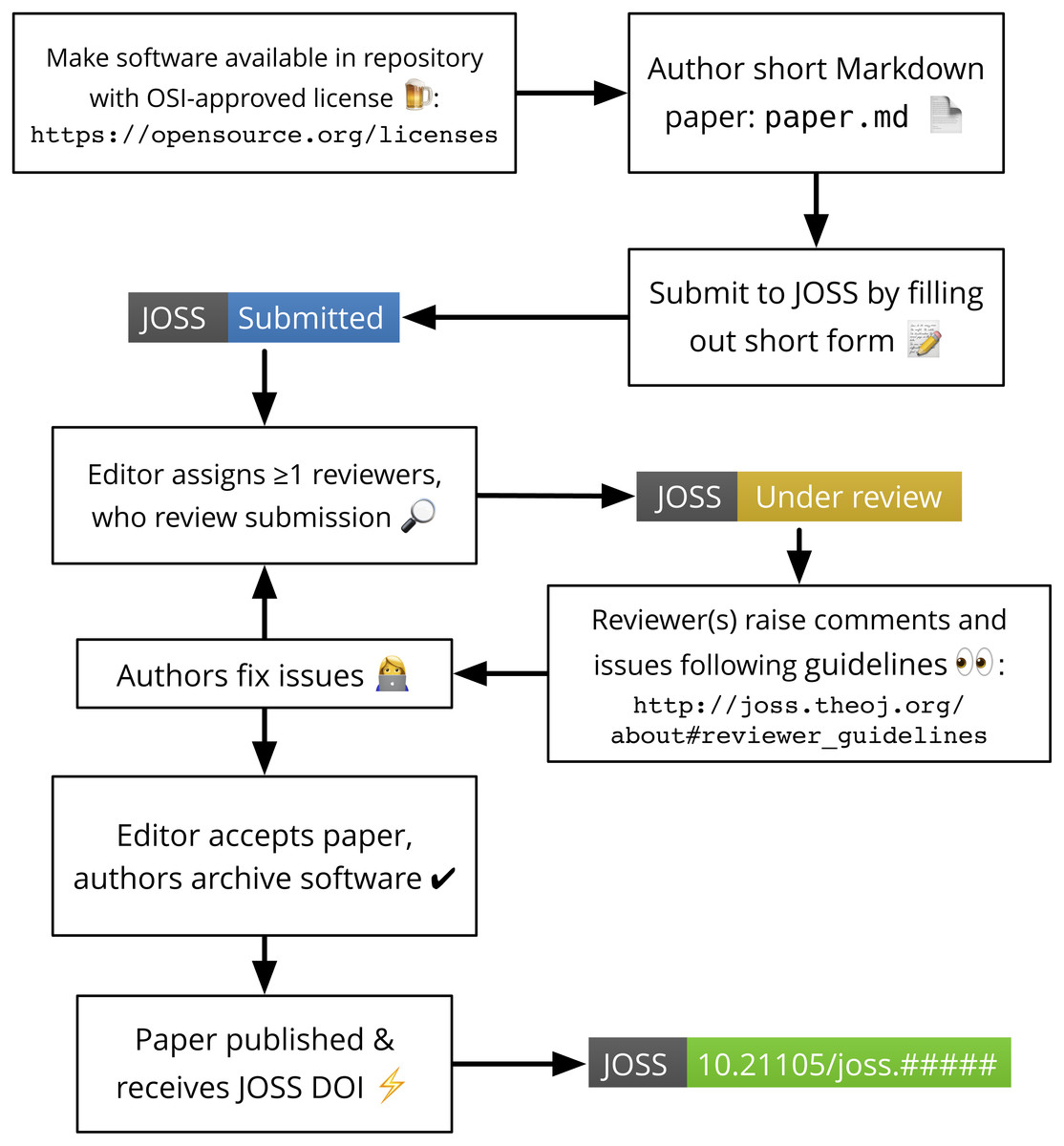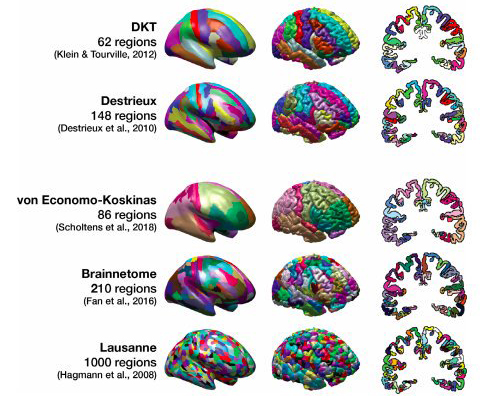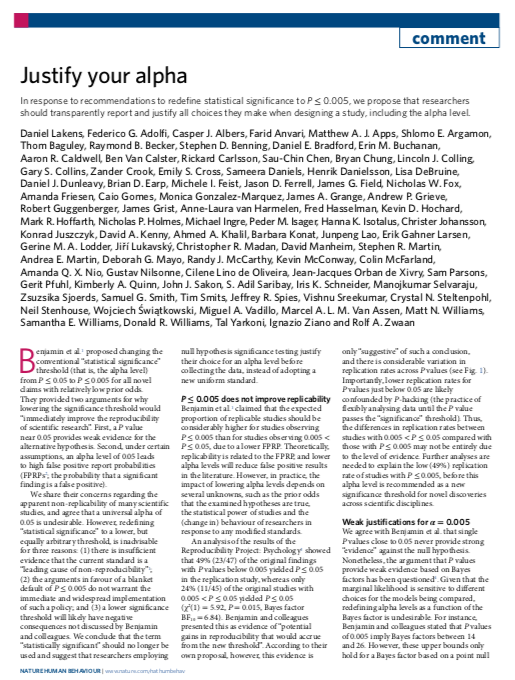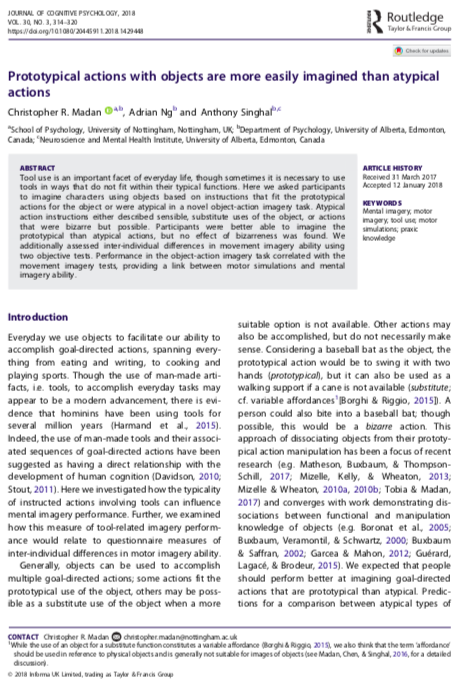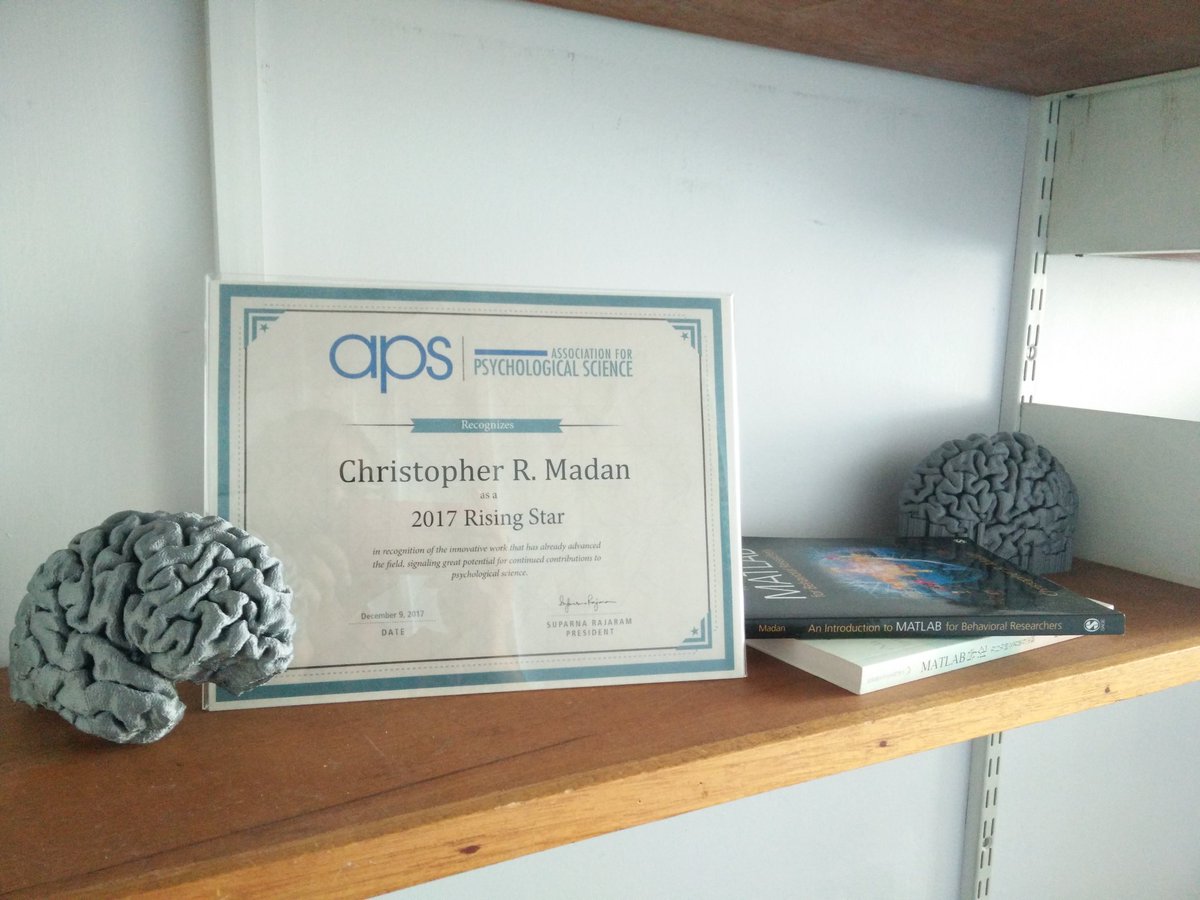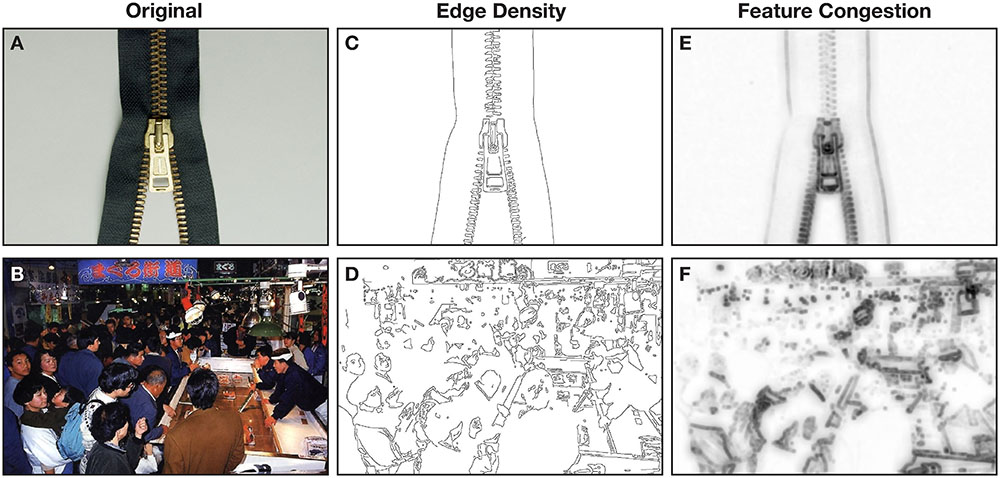Lab Updates
CCS Research Award to Marcia Spetch
Dr. Madan’s former PhD supervisor and on-going collaborator, is being honored with the Comparative Cognition Society Research Award.
A special issue of Behavioural Processes</a> has also been organised in honor of Marcia’s contributions to the field.
Living near the edge: How extreme outcomes and their neighbors drive risky choice
“Extreme stimuli are often more salient in perception and memory than moderate stimuli. In risky choice, when people learn the odds and outcomes from experience, the extreme outcomes (best and worst) also stand out. Here we assess whether extreme outcomes stand out because they fall at the edges of the experienced outcome distributions or because they are distinct from other outcomes.”
How to choose a postdoc, and find the right PhD
“It’s a big decision isn’t it? In this podcast we hope our panel can help you decide. Podcast organised by the Dementia Researcher network.
In this weeks podcast our panel is chaired by Dr Charlotte Stoner, Research Associate from University College London. On the panel we have Christopher Madan an Assistant Professor from University of Nottingham, Angelique Mavrodaris a Clinical Research Fellow and Consultant in Public Health Medicine in Cambridge, and Suzanne Hill a PhD student at University of Bradford.”
Four simple strategies from cognitive psychology for the classroom
Short chapter on learning strategies, published in Essays from E-xcellence in Teaching 2017, an annual collection from the Society for the Teaching of Psychology.
“In this article, we describe the science behind four evidence-based teaching strategies: (1) providing visual examples, (2) teaching students to explain and to do, (3) spaced practice, and (4) frequent quizzing. Below, we provide concise overview of these strategies and examples of how they can be implemented in the classroom before describing the science behind each strategy.”
Chinese translation of Matlab book
Dr. Madan’s 2014 book, An Introduction to MATLAB for Behavioral Researchers, has now been translated into Chinese!
Teaching the science of learning
“The science of learning has made a considerable contribution to our understanding of effective teaching and learning strategies. However, few instructors outside of the field are privy to this research. In this tutorial review, we focus on six specific cognitive strategies that have received robust support from decades of research: spaced practice, interleaving, retrieval practice, elaboration, concrete examples, and dual coding. We describe the basic research behind each strategy and relevant applied research, present examples of existing and suggested implementation, and make recommendations for further research that would broaden the reach of these strategies.”
Journal of Open Source Software (JOSS): design and first-year review
New paper in PeerJ CS, providing an overview of the first year at JOSS!
“This article describes the motivation, design, and progress of the Journal of Open Source Software (JOSS). JOSS has the dual goals of improving the quality of the software submitted and providing a mechanism for research software developers to receive credit.”
Predicting age from cortical structure across the lifespan
New paper on fractal dimensionality and age-related differences in brain structure, with Elizabeth Kensinger (Boston College).
“This study assessed how accurately an individual’s age could be predicted by estimates of cortical morphology, comparing a variety of structural measures, including thickness, gyrification and fractal dimensionality.”
Justify your alpha
“In response to recommendations to redefine statistical significance to P ≤ 0.005, we propose that researchers should transparently report and justify all choices they make when designing a study, including the alpha level.”
Prototypical actions with objects are more easily imagined than atypical actions
“Tool use is an important facet of everyday life, though sometimes it is necessary to use tools in ways that do not fit within their typical functions. Here we asked participants to imagine characters using objects based on instructions that fit the prototypical actions for the object or were atypical in a novel object-action imagery task.”
APS Rising Star 2017
Dr. Christopher Madan was recognised by the Association for Psychological Science (APS) with a Rising Star award. This award is presented to outstanding psychological scientists in the earliest stages of their research career post-PhD.
Visual complexity and affect: Ratings reflect more than meets the eye
New paper out with Tobias Sommer and colleagues at the University Medical Center Hamburg-Eppendorf.
“Prior studies have reported a relationship between affect and visual complexity, where complex pictures are rated as more pleasant and arousing. However, a relationship in the opposite direction, an effect of affect on visual complexity, is also possible; emotional arousal and valence are known to influence selective attention and visual processing.”
